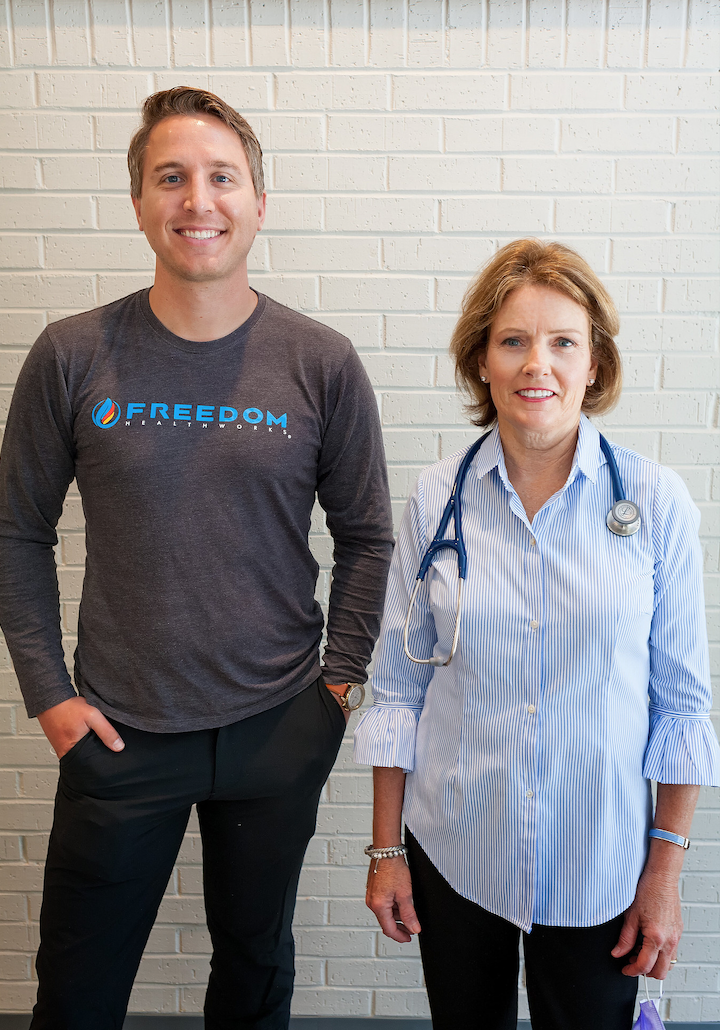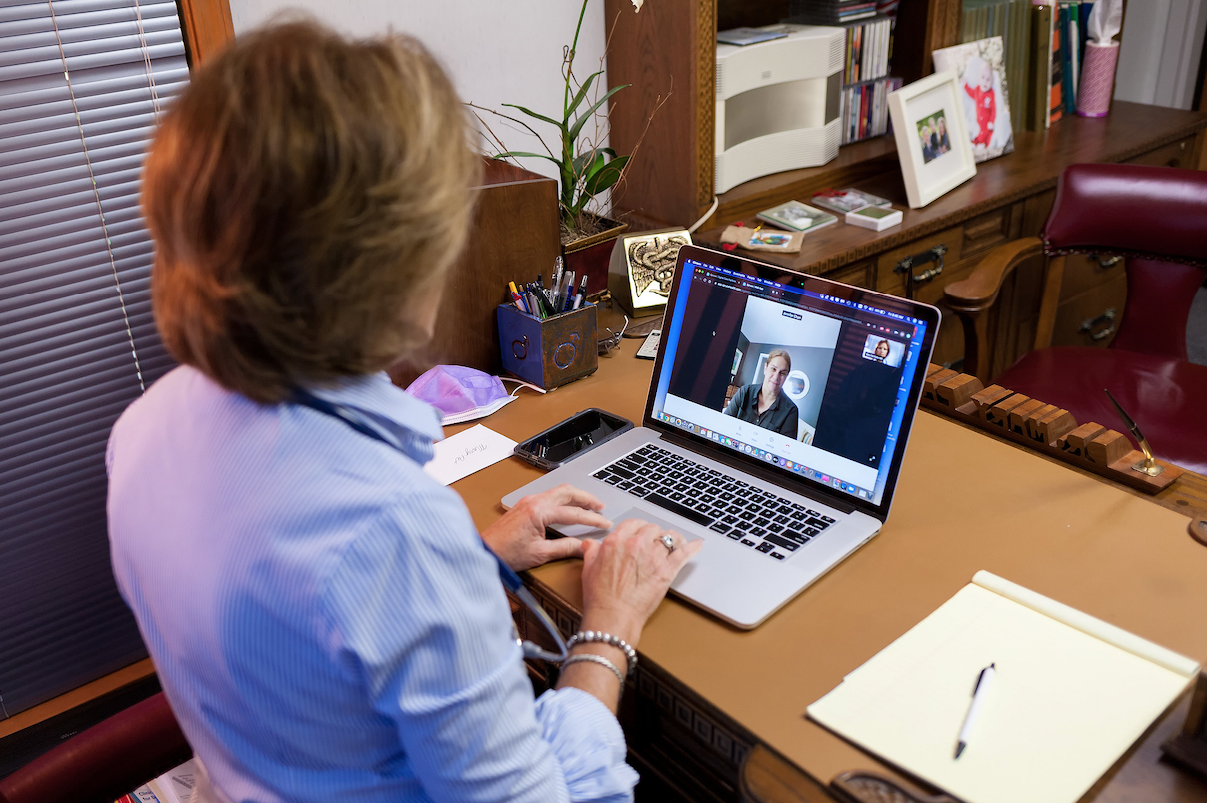Photographer / Ron Wise
 According to the American Medical Association, almost 75% of all doctor, urgent care, and emergency room visits could be handled safely and effectively via phone or video.
According to the American Medical Association, almost 75% of all doctor, urgent care, and emergency room visits could be handled safely and effectively via phone or video.
Though many people use the terms telemedicine and telehealth interchangeably, telehealth refers to the use of electronic information and telecommunications technology to support long-distance clinical healthcare and health-related education for patients. It’s different than telemedicine because it refers to a broader scope of remote health care services than telemedicine, including clinical services and education.
Christopher Habig, CEO and co-founder of Freedom Healthworks, says his company has been offering telehealth services for quite a while, primarily for patients who are out of town or spend part of the year in a different location. This year, the coronavirus pandemic quickly introduced many people to the concept of telehealth, and the company is helping Hoosiers access health care services virtually.
Dr. Mary Pat Forkin of Westfield Premier Physicians is one of the physicians who connects with patients.
“There are a lot of health care needs people have that don’t necessarily require them to be in your office all the time,” Forkin says. “More often than not, people are using this type of telehealth for acute care, and that’s really smart.”
Telehealth can be a smart option in the following scenario: A patient is feeling under the weather, and decides to go to a MinuteClinic because it seems like the faster, simpler option. If a staff member at the MinuteClinic isn’t capable of handling the situation, instead of calling the patient’s physician to see if the individual can be seen the following day, they send the patient to an urgent care center, like Bend Urgent Care, or emergency room.
“That really drives up downstream costs,” Forkin says. “Seeing them [virtually], and being able to triage if they need to be seen in person, saves money.”
Habig says one benefit of a telehealth service is that if a doctor decides a patient needs to be seen in person, that doctor can invite the patient into the office for a lower cost than many alternatives.
Forkin says the company is cost-conscious about imaging, and will send patients to Northwest Radiology Network or the Center for Diagnostic Imaging rather a hospital, where imaging can be three to four times the cost.
“Again, you are looking at saving cost, depending on the type of telehealth that you use,” Forkin says.
Habig says patients who were initially wary of telehealth services are finding they appreciate the convenience and the ability to talk to a physician.
“Many are shocked they get to talk to an actual doctor,” Habig says. “For many people, it’s the first time they get an MD to answer their questions, as usually mid-levels or medical assistants do that.”
Plus, with FaceTime technology, doctors actually get to lay eyes on patients.
“It almost feels like you’re there,” Forkin says. “I can tell by looking at them if they are in any sort of distress, pain or having trouble breathing.”
With the option of telehealth, many doctors were still able to offer annual exams after many facilities were shut down due to the coronavirus pandemic.
“Two-thirds of the time we spend with somebody for their annual is just talking – getting their past medical history, a review of their medications – things like that,” Forkin says.
However, Forkin does not minimize the importance of the in-person communication that many patients want.
“Having that physical relationship from the standpoint of just being in here is important for good primary care,” she says.
Telehealth can also be effective for psychological and psychiatric treatment.
“It’s an excellent way for those at a distance to still get mental health care,” Forkin says.
The Freedom staff works with a community of physicians who all band together to give non-members an affordable option.
“We are trying to cater to people who may not have a lot of options right now,” says Habig, noting that his company allows patients seeking medical care to video chat with a local, board-certified physician for a flat fee of $59.
In addition, the company’s services are available not only to members of Westfield Premier Physicians, but non-members as well, and the company provides virtual care for patients seeking a quick, low-cost alternative to a traditional doctor’s office.
Habig says health insurance does not equal health care.
“Health care is being able to talk to a doctor, whereas health insurance is a financial tool,” he says. “A lot of people say, ‘I have really good insurance. I don’t need to go to a practice.’ Not true. Also, no insurance doesn’t mean bad health care. They are two totally different things.”
For more info on Freedom Healthworks, call 317-804-1203 and visit freedomhealthworks.com.






